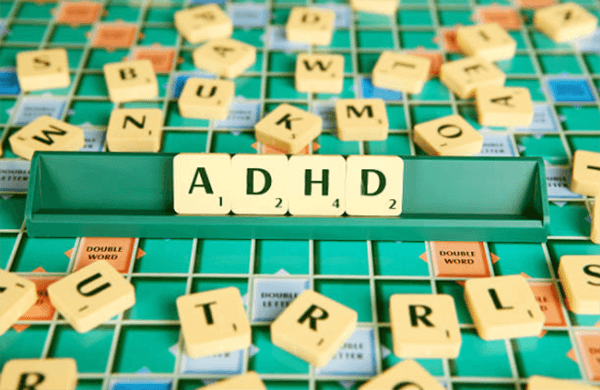
ADHD Evaluations provide an assessment of an individual’s executive functioning and behavioral functioning as it relates to a diagnosis of ADHD. Executive functioning is a term used to describe many thinking components such as attention, focus, memory, planning and inhibiting behavior when necessary. These evaluations examine thinking components as well as the behavioral and emotional challenges that often occur when an individual has ADHD. These evaluations are appropriate for children and adults. Results help to inform formal diagnosis, school recommendations, educational planning, and emotional and behavioral treatmen
Behavioral Problem Evaluations provide an assessment of problematic behavior patterns to help understand why a child is behaving in a certain manner and to help determine what can be done to decrease unwanted behavior. These evaluations are tailored to the specific type of behavioral difficulty your child is experiencing and may entail testing that evaluates intellectual functioning, academic functioning, social functioning, and/or emotional functioning. Results and recommendations are aimed at informing parents’ and teachers’ approaches to daily interactions, behavioral remediation, and possible treatment.


Developmental Evaluations provide an in-depth assessment of a child’s gross and fine motor skills, expressive and receptive language, and cognitive, behavioral, and emotional functioning. Additionally, developmental evaluations provide an assessment of a child’s adaptive functioning. Adaptive functioning refers to an individual’s capacity and tendency to behave in a manner that meets his/her needs and expected standards of personal independence and social responsibility. These evaluations help to inform parents and teachers how the child is functioning at home, school and in the community. These evaluations are designed to answer questions about a child’s level of intelligence and motor, language, emotional, behavioral, and adaptive functioning, as it compares to other children his or her age. Results and recommendations derived from these evaluations are important for establishing diagnoses, educational planning and accommodation(s), gaining entry into some treatment programs, and treatment planning.
Speech-Language Evaluations provide an assessment of communication functioning to determine if there is a speech-language disorder affecting an individual’s functioning at home, school, or the community. These evaluations are tailored to address the needs of the individual. The areas assessed may include some or all of the following: receptive language, expressive language, speech production, and pragmatic language.


Emotional Problem Evaluations provide an assessment of the types and patterns of emotions that are causing your child’s distress. These evaluations are tailored to the specific issues a child is facing and may include assessment of a child’s intellectual, social, and/or behavioral functioning. Results and recommendations are aimed at finding ways to reduce your child’s emotional distress.
Intellectual Evaluations provide in-depth assessment of an individual’s intellectual functioning. These evaluations are designed to obtain information on several factors of intelligence (i.e. factual knowledge, short-term memory, abstract reasoning, visual-spatial abilities, common sense, etc). The results are used by educational programs as part of the determination of the “Gifted” label. At the other end of the spectrum, the results can also identify intellectual disability.


Psychoeducational/Learning Disability Evaluations provide an assessment of an individual’s learning capacity in specific areas such as math, reading, and writing. A learning disability evaluation also assesses thinking components that underlie the learning process such as receptive and expressive language, verbal and non-verbal reasoning, memory, attention and focus. Since emotional and behavioral functioning often interferes with learning, these areas are often assessed as part of learning disability evaluations. Results and recommendations inform diagnosis and best practices for school and home to help the child to engage in supportive and successful learning.
Pre-Adoption Evaluations provide an assessment of the psychosocial functioning, parental readiness, and marital stability of potential adoptive parents. These evaluations generally include an objective (i.e., paper and pencil) personality measure to supplement self-report (i.e., interview) data.


Mental Health/Psychodiagnostic Evaluations provide an overall picture of an individual’s emotional and social functioning. These evaluations consist of a clinical interview and are designed to help diagnose and clarify concerns regarding behavior, personality traits, mood, emotional functioning, and cognitive processes.
Neuropsychological Evaluations provide in-depth assessment of cognitive and behavioral functioning, using a set of standardized tests and procedures. These evaluations are designed to evaluate functioning in a number of areas including: intelligence, executive functions (e.g., planning, abstraction, conceptualization), attention, memory, language, perception, sensorimotor function, motivation, mood state and emotion, quality of life, and personality styles.


Psychological Evaluations provide a structured, organized, and succinct description of social-emotional functioning, including cognitive abilities and emotional experiences. These evaluations offer insights into the severity of a particular disturbance and the capacity for adequate functioning. These evaluations can also identify the need for therapy, highlight issues that may surface in treatment, recommend particular forms of intervention, and offer guidance about potential outcomes of treatment
NOTE: If the type of evaluation/assessment you are seeking is not listed, please contact us. We may or can give you a referral for a professional who can provide you with appropriate services.
